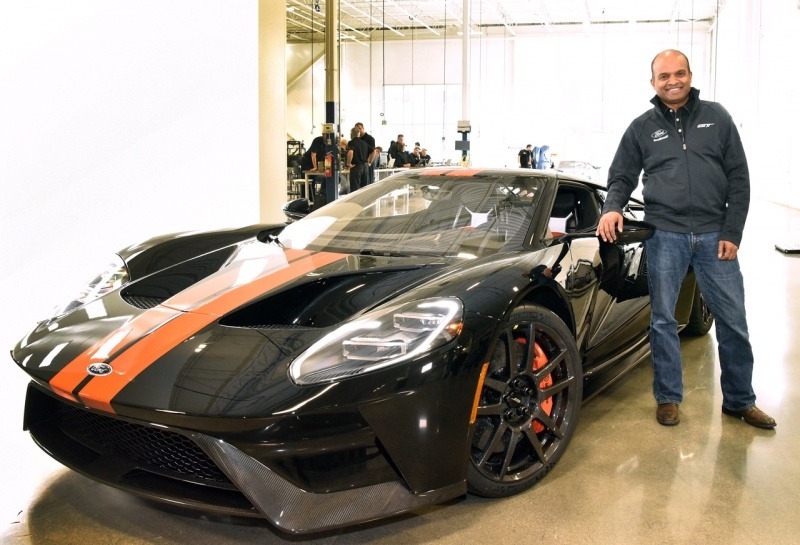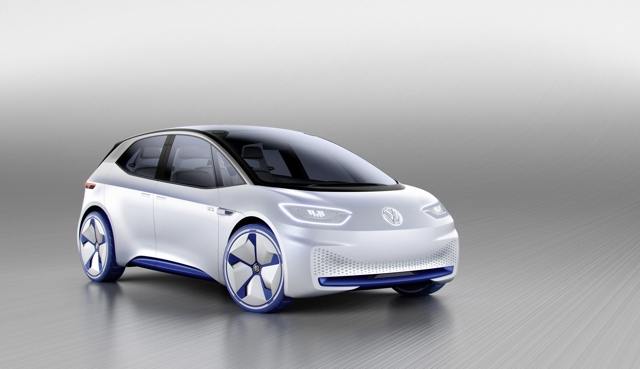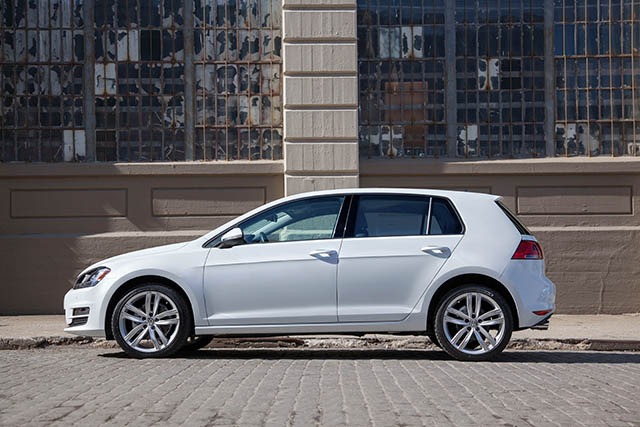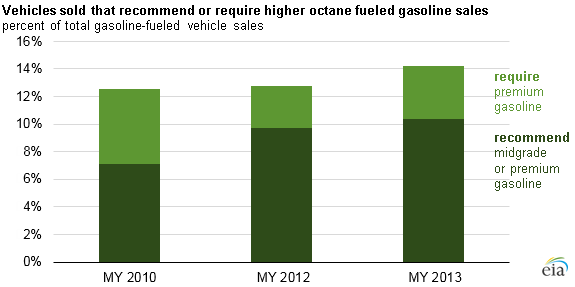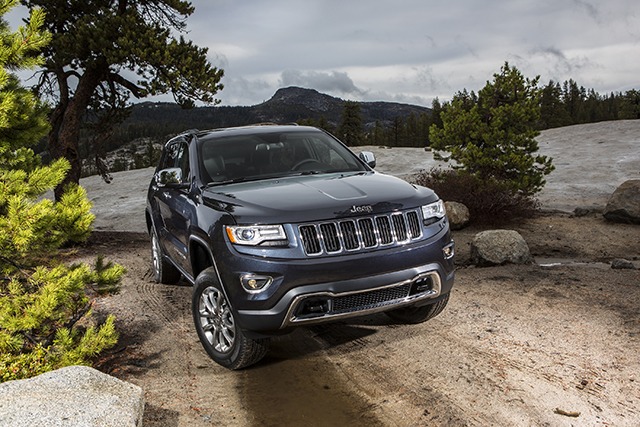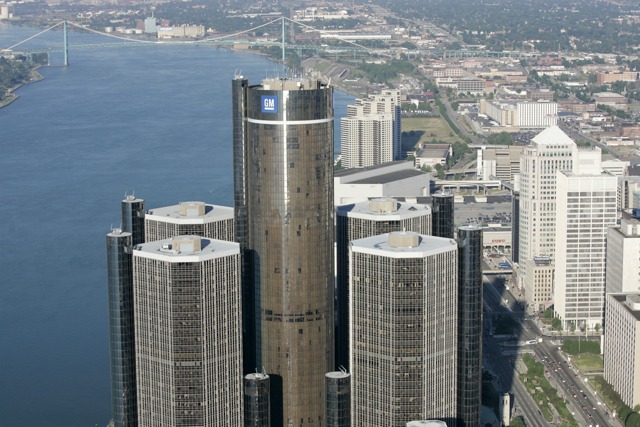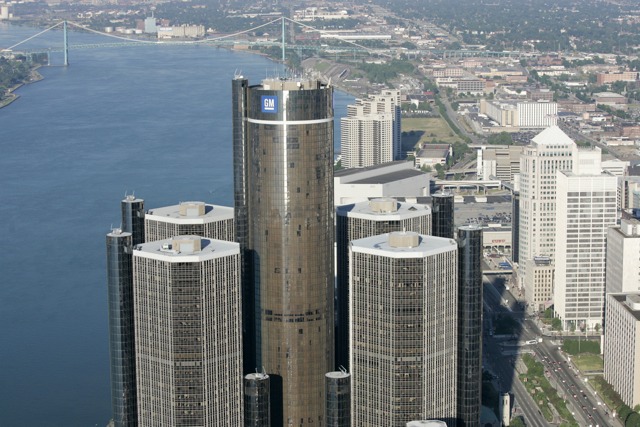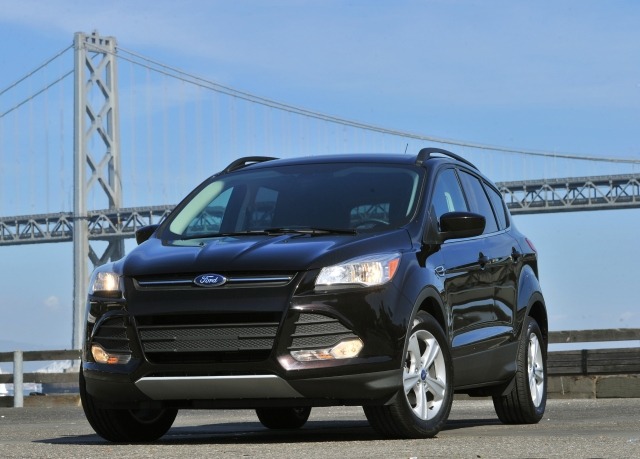Search the Community
Showing results for tags 'Industry'.
-
Raj Nair, Ford’s President of North America has left the company effective immediately after an internal investigation revealed behavior that was "inconsistent with the company's code of conduct." “We made this decision after a thorough review and careful consideration. Ford is deeply committed to providing and nurturing a safe and respectful culture and we expect our leaders to fully uphold these values,” said Ford President and CEO Jim Hackett in a statement. The Detroit News reports the investigation stemmed from an anonymous complaint accusing Nair of unspecified behavior. Ford wouldn't go into detail about the behavior "to protect the privacy of those involved." “I sincerely regret that there have been instances where I have not exhibited leadership behaviors consistent with the principles that the Company and I have always espoused. I continue to have the utmost faith in the people of Ford Motor Company and wish them continued success in the future,” said Nair in a statement. Nair had been Ford's North American president since last May. Before that, Nair was Ford's chief technical officer. The company said a replacement would be announced in the near future. This is the latest black eye to hit Ford. Back in August, the company agreed to pay $10.125 million to settle an investigation into race and sexual harassment at two of their plants by U.S. Equal Employment Opportunity Commission (EEOC). In December, the New York Times published a scathing report talking about the culture of harassment at the two Chicago plants that had been going on for a number of years. “This comes at a particularly bad time for Ford, which only last spring ousted Mark Fields as CEO. Investors and analysts have been unhappy with the seeming lack of a clear direction for Ford, especially in terms of future mobility services," said Michelle Krebs, an analyst with Auto Trader in an email to the Detroit News. "The pressure is on Jim Hackett, anointed CEO last spring, to lay out a clear road ahead for Ford.” We'll keep you posted on any new developments come to light. Source: Ford, The Detroit News, Reuters Press Release is on Page 2 Raj Nair, Ford’s President Of North America, Exits Company DEARBORN, Mich., Feb. 21, 2018 – Ford Motor Company today announced that Raj Nair, executive vice president and president, North America, is departing from Ford effective immediately. The decision follows a recent internal investigation into reports of inappropriate behavior. The review determined certain behavior by Nair was inconsistent with the company’s code of conduct. “We made this decision after a thorough review and careful consideration,” said Ford President and CEO Jim Hackett. “Ford is deeply committed to providing and nurturing a safe and respectful culture and we expect our leaders to fully uphold these values.” Said Nair: “I sincerely regret that there have been instances where I have not exhibited leadership behaviors consistent with the principles that the Company and I have always espoused. I continue to have the utmost faith in the people of Ford Motor Company and wish them continued success in the future.” Nair has been president of Ford North America since June 1, 2017. Prior to that, he served as Ford’s head of global product development and chief technical officer. Nair’s replacement will be subject to an announcement in the near future.
-
Raj Nair, Ford’s President of North America has left the company effective immediately after an internal investigation revealed behavior that was "inconsistent with the company's code of conduct." “We made this decision after a thorough review and careful consideration. Ford is deeply committed to providing and nurturing a safe and respectful culture and we expect our leaders to fully uphold these values,” said Ford President and CEO Jim Hackett in a statement. The Detroit News reports the investigation stemmed from an anonymous complaint accusing Nair of unspecified behavior. Ford wouldn't go into detail about the behavior "to protect the privacy of those involved." “I sincerely regret that there have been instances where I have not exhibited leadership behaviors consistent with the principles that the Company and I have always espoused. I continue to have the utmost faith in the people of Ford Motor Company and wish them continued success in the future,” said Nair in a statement. Nair had been Ford's North American president since last May. Before that, Nair was Ford's chief technical officer. The company said a replacement would be announced in the near future. This is the latest black eye to hit Ford. Back in August, the company agreed to pay $10.125 million to settle an investigation into race and sexual harassment at two of their plants by U.S. Equal Employment Opportunity Commission (EEOC). In December, the New York Times published a scathing report talking about the culture of harassment at the two Chicago plants that had been going on for a number of years. “This comes at a particularly bad time for Ford, which only last spring ousted Mark Fields as CEO. Investors and analysts have been unhappy with the seeming lack of a clear direction for Ford, especially in terms of future mobility services," said Michelle Krebs, an analyst with Auto Trader in an email to the Detroit News. "The pressure is on Jim Hackett, anointed CEO last spring, to lay out a clear road ahead for Ford.” We'll keep you posted on any new developments come to light. Source: Ford, The Detroit News, Reuters Press Release is on Page 2 Raj Nair, Ford’s President Of North America, Exits Company DEARBORN, Mich., Feb. 21, 2018 – Ford Motor Company today announced that Raj Nair, executive vice president and president, North America, is departing from Ford effective immediately. The decision follows a recent internal investigation into reports of inappropriate behavior. The review determined certain behavior by Nair was inconsistent with the company’s code of conduct. “We made this decision after a thorough review and careful consideration,” said Ford President and CEO Jim Hackett. “Ford is deeply committed to providing and nurturing a safe and respectful culture and we expect our leaders to fully uphold these values.” Said Nair: “I sincerely regret that there have been instances where I have not exhibited leadership behaviors consistent with the principles that the Company and I have always espoused. I continue to have the utmost faith in the people of Ford Motor Company and wish them continued success in the future.” Nair has been president of Ford North America since June 1, 2017. Prior to that, he served as Ford’s head of global product development and chief technical officer. Nair’s replacement will be subject to an announcement in the near future. View full article
-
Members of Germany's government have passed a resolution that could mean the end of gas and diesel vehicles. German newspaper Der Spiegel reports that the Germany's legislative body, the Bundesrat (represents all sixteen states in the country) passed a resolution to ban the sale of gas and diesel engines in 2030. After that, only zero-emission vehicles will be allowed to be built. The resolution also calls on the European Union to follow in their footsteps. But the Bundesrat doesn't have any direct authority over the EU. However, Forbes points out that Germany has the largest government and most powerful economy in the EU. This means any legislation that goes through Germany will in turn influence the EU. In the resolution, the Bundesrat requests the EU to "review the current practices of taxation and dues with regard to a stimulation of emission-free mobility." Forbes notes this would include possibly scrapping the lower taxes a number of member states employ for diesel. Higher taxes would likely cause people to avoid diesel vehicles. Source: Der Spiegel, Forbes
-
Members of Germany's government have passed a resolution that could mean the end of gas and diesel vehicles. German newspaper Der Spiegel reports that the Germany's legislative body, the Bundesrat (represents all sixteen states in the country) passed a resolution to ban the sale of gas and diesel engines in 2030. After that, only zero-emission vehicles will be allowed to be built. The resolution also calls on the European Union to follow in their footsteps. But the Bundesrat doesn't have any direct authority over the EU. However, Forbes points out that Germany has the largest government and most powerful economy in the EU. This means any legislation that goes through Germany will in turn influence the EU. In the resolution, the Bundesrat requests the EU to "review the current practices of taxation and dues with regard to a stimulation of emission-free mobility." Forbes notes this would include possibly scrapping the lower taxes a number of member states employ for diesel. Higher taxes would likely cause people to avoid diesel vehicles. Source: Der Spiegel, Forbes View full article
-
It came as a shock to many when Volkswagen admitted that it used illegal software to cheat emission tests with their diesel. But there was one group that wasn't surprised, automakers. Kent Falck, a future product specialist at Volvo said a recent event that many automakers were very suspicious of Volkswagen's emission results with their TDI engines. Falck explained that many were puzzled as to how Volkswagen was able to achieve lower emissions despite using the same suppliers as other automakers. “We have the same suppliers, we have Bosch, we have Denso, we are working with the same partners, so we know this technology doesn’t exist,” said Falck. “I have known that for seven years.” “We sat in a room and reviewed all the facts, figures, whatever we have, with the specialists. (But) we can’t manage it, how are the others doing it? We don’t know.” At first, Falck thought Volkswagen had some sort of proprietary technology to pull this off without resorting to such technologies such urea injection. “There is always intellectual properties in the world ... there might be something out there in the technology ... that we are not allowed to buy because it’s owned by a supplier. We were wondering how (VW met strict US emissions targets) that’s for sure.” But soon enough, Falck and other people at various automakers realized Volkswagen was going at it an illegal way. Source: News.com.au
-
- As the Diesel Emits
- Executive
-
(and 4 more)
Tagged with:
-
It came as a shock to many when Volkswagen admitted that it used illegal software to cheat emission tests with their diesel. But there was one group that wasn't surprised, automakers. Kent Falck, a future product specialist at Volvo said a recent event that many automakers were very suspicious of Volkswagen's emission results with their TDI engines. Falck explained that many were puzzled as to how Volkswagen was able to achieve lower emissions despite using the same suppliers as other automakers. “We have the same suppliers, we have Bosch, we have Denso, we are working with the same partners, so we know this technology doesn’t exist,” said Falck. “I have known that for seven years.” “We sat in a room and reviewed all the facts, figures, whatever we have, with the specialists. (But) we can’t manage it, how are the others doing it? We don’t know.” At first, Falck thought Volkswagen had some sort of proprietary technology to pull this off without resorting to such technologies such urea injection. “There is always intellectual properties in the world ... there might be something out there in the technology ... that we are not allowed to buy because it’s owned by a supplier. We were wondering how (VW met strict US emissions targets) that’s for sure.” But soon enough, Falck and other people at various automakers realized Volkswagen was going at it an illegal way. Source: News.com.au View full article
-
- As the Diesel Emits
- Executive
-
(and 4 more)
Tagged with:
-

How We Are Spending More and Less at the Gas Pump
William Maley posted an article in Automotive Industry
The good news is that consumers are visiting the gas station less. The bad news is that consumers are spending more at the pump. Wait, those two sentences contradict each other. Which one is true? According to the Energy Information Administration (EIA), both of these sentences are correct. Let us explain. As new fuel economy and emission regulations come into effect, automakers are trying to figure out ways to make that gallon of gas go farther. One method that a number of automakers are using is turbochargers. They allow automakers to use smaller displacement engines to improve fuel economy and retain the power of larger engines. The EIA says the market share of turbo engines has climbed from 3.3 percent in 2009 to 17.6 percent in 2014. But the problem is that many turbo engines require premium fuel to operate at their full potential, which costs more than regular and midgrade fuel. Yes, you can fill them with regular and not have the issue of knock - premature fuel detonation due to increased cylinder pressure. But you lose some of the power that the turbo is providing. The EIA says that only 12.5 percent of vehicles recommended premium fuel in 2010. This increased to 14.2 percent in 2013. With turbo engines projected to be in 83.3 percent of new vehicles by 2025, expect to pay more at the pump despite going there less. Source: Energy Information Administration -
The good news is that consumers are visiting the gas station less. The bad news is that consumers are spending more at the pump. Wait, those two sentences contradict each other. Which one is true? According to the Energy Information Administration (EIA), both of these sentences are correct. Let us explain. As new fuel economy and emission regulations come into effect, automakers are trying to figure out ways to make that gallon of gas go farther. One method that a number of automakers are using is turbochargers. They allow automakers to use smaller displacement engines to improve fuel economy and retain the power of larger engines. The EIA says the market share of turbo engines has climbed from 3.3 percent in 2009 to 17.6 percent in 2014. But the problem is that many turbo engines require premium fuel to operate at their full potential, which costs more than regular and midgrade fuel. Yes, you can fill them with regular and not have the issue of knock - premature fuel detonation due to increased cylinder pressure. But you lose some of the power that the turbo is providing. The EIA says that only 12.5 percent of vehicles recommended premium fuel in 2010. This increased to 14.2 percent in 2013. With turbo engines projected to be in 83.3 percent of new vehicles by 2025, expect to pay more at the pump despite going there less. Source: Energy Information Administration View full article
-
Jeep has always been the most important part of Chrysler. But now its an important part of new car sales in general. Automotive News has been crunching the numbers and has figured out that in the past eleven months, automakers have sold around 780,000 more vehicles than at this same time last year. Out of that, one out of every four was a Jeep. Jeep has been having a remarkable 2014. The brand has seen its sales sales climb 44 percent in the past year. Brand loyalty has also been rising, with Jeep posting a increase of 16 percent. That puts it right behind Maserati and Mitsubishi according to IHS automotive. Jeep's massive growth has also been helping out its parent company, Fiat Chrysler Automobiles. The company has seen its sales rise 16 percent in the past year, and its market share grow from 8.7 percent in March 2010 to 13.2 percent now. “It’s a whole different feeling now. It’s not a rental-car fleet anymore. The consumer is buying our product,” said Chuck Eddy, a Chrysler dealer in Youngstown, Ohio, and chairman of the Chrysler National Dealer Council. Source: Automotive News (Subscription Required)
- 3 comments
-
- Fiat Chrysler Automobiles
- Industry
-
(and 2 more)
Tagged with:
-
Jeep has always been the most important part of Chrysler. But now its an important part of new car sales in general. Automotive News has been crunching the numbers and has figured out that in the past eleven months, automakers have sold around 780,000 more vehicles than at this same time last year. Out of that, one out of every four was a Jeep. Jeep has been having a remarkable 2014. The brand has seen its sales sales climb 44 percent in the past year. Brand loyalty has also been rising, with Jeep posting a increase of 16 percent. That puts it right behind Maserati and Mitsubishi according to IHS automotive. Jeep's massive growth has also been helping out its parent company, Fiat Chrysler Automobiles. The company has seen its sales rise 16 percent in the past year, and its market share grow from 8.7 percent in March 2010 to 13.2 percent now. “It’s a whole different feeling now. It’s not a rental-car fleet anymore. The consumer is buying our product,” said Chuck Eddy, a Chrysler dealer in Youngstown, Ohio, and chairman of the Chrysler National Dealer Council. Source: Automotive News (Subscription Required) View full article
- 3 replies
-
- Fiat Chrysler Automobiles
- Industry
-
(and 2 more)
Tagged with:
-

Downing of Flight MH17, Who is REALLY to BLAME? Editorial
G. David Felt posted a topic in The Lounge
Downing of Flight MH17, Who is REALLY to BLAME? Editorial G. David Felt Staff Writer Alternative Energy www.CheersandGears.com The downing of Malaysia flight MH17, delays in access to the crash site, and shipment home of the deceased has many thinking about what could have been done to avoid it this tragedy. Another question to ask is what are the rebels trying to hide? The delay in allowing inspectors to the crash site along with the delay in collecting the bodies all while the rebels based on various news sources with cell phone pictures and cell phone videos showing rebels removing evidence makes this an even bigger question. Years now the world has known that weapons manufactures have done everything they can to keep sales flowing. It would not be a far stretch to think that there are many who are involved in one way or another in the backroom deals to keep the flow of cash going for weapons sales. According to Business Insider, Time, and the Moscow Times, Russia saw a 28% increase in weapon sales since lifting the embargo to many countries such as Pakistan, Syrian government and Ukraine rebels. http://www.themoscowtimes.com/business/article/russia-lifts-embargo-on-weapons-sales-to-pakistan/501300.html http://world.time.com/2013/05/17/top-russian-diplomat-explains-logic-behind-syrian-arms-sales/ http://www.businessinsider.com/russian-arms-sales-rose-28-last-year-2014-1 The world weapons companies mostly made up of the US, Canada and Western Europe saw sales last year decline by 4.2% compared to Russia's surge of 28%. This reflects selling into civil war torn countries that most western nations are trying to reduce. Based on so many various news stories and looking at the way weapon companies sales have been going, I will say that the weapon companies followed by countries pushing weapon sales are totally to blame for the downing of MH17. Russia as of 2013 became the world's largest seller and exporter of weapons according to Wikipedia. http://en.wikipedia.org/wiki/Arms_industry- 3 replies
-
- blame
- Flight mh17
-
(and 2 more)
Tagged with:
-
A new study finds that General Motors is dead last when it comes to relationships with suppliers. Automotive consultant group Planning Perspectives Inc (PPI), released the results of their annual study which asks the biggest suppliers to rate the six automakers who sell more than 85 percent of vehicles in the U.S. Suppliers rated GM low in many key areas such as communication skills, protection of intellectual property, unwillingness to adjust prices due to unforeseen increases, and overall trustworthiness. "As a result, GM is now the least preferred customer of suppliers," PPI said. Source: Reuters William Maley is a staff writer for Cheers & Gears. He can be reached at [email protected] or you can follow him on twitter at @realmudmonster. View full article
- 2 replies
-
- General Motors
- GM
-
(and 3 more)
Tagged with:
-
A new study finds that General Motors is dead last when it comes to relationships with suppliers. Automotive consultant group Planning Perspectives Inc (PPI), released the results of their annual study which asks the biggest suppliers to rate the six automakers who sell more than 85 percent of vehicles in the U.S. Suppliers rated GM low in many key areas such as communication skills, protection of intellectual property, unwillingness to adjust prices due to unforeseen increases, and overall trustworthiness. "As a result, GM is now the least preferred customer of suppliers," PPI said. Source: Reuters William Maley is a staff writer for Cheers & Gears. He can be reached at [email protected] or you can follow him on twitter at @realmudmonster.
- 2 comments
-
- General Motors
- GM
-
(and 3 more)
Tagged with:
-
William Maley Staff Writer - CheersandGears.com October 30, 2013 The U.S. Treasury's sell off of General Motors stock isn't faring so well. According to a new report from The Detroit News, the U.S. Treasury has reported a $9.7 billion loss on the $49.5 billion bailout of GM back in 2009. This figure comes from the quarterly report from the Special Inspector General of the Troubled Asset Relief Program to Congress. The U.S. Treasury original stake in GM back in 2009 was around 60.8 percent. Since that time, the Treasury has been selling off shares in a effort to make back some of the funds used in the bailout. The Detroit News says for the U.S. Treasury to break even, the share price would have to be around $147.95. That isn't going to happen since GM's current price stands at $36.06 at the end of yesterday's trading. Source: The Detroit News William Maley is a staff writer for Cheers & Gears. He can be reached at [email protected] or you can follow him on twitter at @realmudmonster. View full article
- 4 replies
-
- General Motors
- Industry
-
(and 2 more)
Tagged with:
-

U.S. Treasury Reports A $9.7 Billion Loss On GM's Bailout
William Maley posted an article in Automotive Industry
William Maley Staff Writer - CheersandGears.com October 30, 2013 The U.S. Treasury's sell off of General Motors stock isn't faring so well. According to a new report from The Detroit News, the U.S. Treasury has reported a $9.7 billion loss on the $49.5 billion bailout of GM back in 2009. This figure comes from the quarterly report from the Special Inspector General of the Troubled Asset Relief Program to Congress. The U.S. Treasury original stake in GM back in 2009 was around 60.8 percent. Since that time, the Treasury has been selling off shares in a effort to make back some of the funds used in the bailout. The Detroit News says for the U.S. Treasury to break even, the share price would have to be around $147.95. That isn't going to happen since GM's current price stands at $36.06 at the end of yesterday's trading. Source: The Detroit News William Maley is a staff writer for Cheers & Gears. He can be reached at [email protected] or you can follow him on twitter at @realmudmonster.- 4 comments
-
- General Motors
- Industry
-
(and 2 more)
Tagged with:
-
By William Maley Staff Writer - CheersandGears.com May 10, 2013 While the midsize sedan market as a whole remains the single largest segment in the U.S., sales of the Honda Accord and Toyota Camry are shrinking due to the rise of crossovers. "While the segment is still growing year-over-year, it's nowhere near what it was growing last year as the industry was launching a lot of new midsize cars," said Bill Fay, the U.S. head of the Toyota brand. The rise of crossovers are being fueled by their practicalness, ability to get in and out much easier, and improved fuel economy. The price gap between midsize sedans and crossovers has also narrowed. Kelly Blue Book says a crossover costs $1,300 more on average than a midsize sedan. To put it another way, the difference in monthly payments between a midsize sedan and a crossover is less than $20. "Fundamentally, both serve the family market. Midsize cars have gotten smaller and more expensive, because of a variety of factors. People are switching to crossovers, because they satisfy the family needs very well," said Mustafa Mohatarem, General Motors Co's chief economist. Source: Reuters William Maley is a staff writer for Cheers & Gears. He can be reached at [email protected] or you can follow him on twitter at @realmudmonster. View full article
- 7 replies
-
- Crossover
- Family Sedan
-
(and 3 more)
Tagged with:
-

Crossovers Are Eating Up Sales Of Midsize Sedans
William Maley posted an article in Automotive Industry
By William Maley Staff Writer - CheersandGears.com May 10, 2013 While the midsize sedan market as a whole remains the single largest segment in the U.S., sales of the Honda Accord and Toyota Camry are shrinking due to the rise of crossovers. "While the segment is still growing year-over-year, it's nowhere near what it was growing last year as the industry was launching a lot of new midsize cars," said Bill Fay, the U.S. head of the Toyota brand. The rise of crossovers are being fueled by their practicalness, ability to get in and out much easier, and improved fuel economy. The price gap between midsize sedans and crossovers has also narrowed. Kelly Blue Book says a crossover costs $1,300 more on average than a midsize sedan. To put it another way, the difference in monthly payments between a midsize sedan and a crossover is less than $20. "Fundamentally, both serve the family market. Midsize cars have gotten smaller and more expensive, because of a variety of factors. People are switching to crossovers, because they satisfy the family needs very well," said Mustafa Mohatarem, General Motors Co's chief economist. Source: Reuters William Maley is a staff writer for Cheers & Gears. He can be reached at [email protected] or you can follow him on twitter at @realmudmonster.- 7 comments
-
- Crossover
- Family Sedan
-
(and 3 more)
Tagged with:


